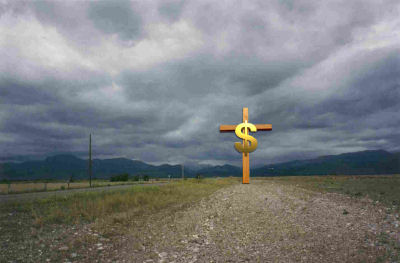Neoliberalism, libertarianism and thought control processes - article by Sally Pepper
 There’s a sinister contradiction in the philosophy and pervasiveness of neoliberalism. The contradiction is that neoliberalism uses the concept of freedom, something we all love and value highly, to sell its message. That message is about the freedom of goods, services and wealth, to go wherever they like, chasing their own best interests, finding their own level and the best deal, with as few impediments and disincentives as possible.
There’s a sinister contradiction in the philosophy and pervasiveness of neoliberalism. The contradiction is that neoliberalism uses the concept of freedom, something we all love and value highly, to sell its message. That message is about the freedom of goods, services and wealth, to go wherever they like, chasing their own best interests, finding their own level and the best deal, with as few impediments and disincentives as possible.
'Freedom'
This freedom also assumes that moving commodities and labour anywhere they need to go, from the aspect of the best economic deal, is actually in the long term, when all the monetary costs are counted and finiteness of resources ignored, also free. On the domestic level, neoliberalism means small government, user-pays, low taxation, and declining government safety nets for people who are not thriving in this economic environment. It also means a high level of acceptance of its ultimate truth, such that there is no effective opposition to it.
A person I met who described herself as a “libertarian” was recently asked what there will be in a future Australia for low-achieving high school students from disadvantaged homes when they leave school. She replied that it will be a case of entrepreneurship and they will be free to make what they can of the circumstances they find themselves in.
So we are all free to make our own way with whatever business we can make a go of. I guess we see this in third world countries with poor people selling food from little stalls attached to bicycles which can be moved from one market place to another. That’s entrepreneurship of sorts.
At the same time as the rhetoric is about freedom, free trade, free movement of people etc., it seems that there is more and more propaganda (rather than news) coming from mainstream media sources and that the messages are becoming more and more uniform. The presenters of the ABC almost ridicule any listener comments that smack of winding back free trade in the face of terrible job losses and hardship for working people. There are certain things that no-one from the ABC would now speak against and, because of the growing taboos, issues are not explored thoroughly anymore.
At universities, political correctness overrules analysis. Tertiary education is subsumed into occupational training. Teaching is undervalued and teachers regularly run the gauntlet of formal student criticism and are overworked.
Tertiary students now wonder aloud what they should think, what opinion they should hold, whereas once they delighted in exploring ideas with the seeming infinite capacity of their analytical and synthetic powers.
What’s this got to do with neoliberalism?
Well, first of all, the down-grading of universities to vocational training grounds and the change of student culture from entering the course which most interests you to finding the one that will yield the best salary on completion, coincides with the rise in neoliberalism. In Australia it coincides with a greater and greater contribution to university fees from students. It coincides with diminishing numbers of academics with tenure. The lack of tenure means academics in the teaching and research realm have to toe the line or they will lose their livelihoods. Universities have to raise their own funds. There is serious loss of autonomy and, with that, a serious loss of free thinking, speech and writing.
The school leavers with the highest scores now seem to aspire to the most utilitarian university courses, such as commerce, law and accounting, eschewing science and even the arts. Within the discipline of economics and commerce, the bottom line is economic expediency and there are rules that govern. The free market is part of this and it seems that all is entrusted to the market. “The market will sort this out,” and “market forces will prevail.”

The Market is now the Pope
The market is considered infallible! It used to be the Pope but now it is the market. Once a student has learned this tenet, it is a simple formula that applies to everything and doesn’t require any more thought or analysis. The trouble is that, it’s all so wonderfully free but it doesn’t count the costs. If it did, it wouldn’t seem so free.
Neoliberalism or, should I say, economic rationalism, places economics at the centre of the universe. So economic activity all adds up to that wonderful concept, GDP, and the more of that we have, it seems, the better we are doing - by some idiot’s assessment. But the more GDP we have, the poorer the environment becomes. To a neoliberal economist, though, the environment is a mere externality and need not be counted. The libertarian I met explicitly said that the environment should not be considered over the economy, as people are part of the environment and people do what they do so, ipso facto, that is OK.
As all this liberty abounds in the economic world, the rest of the world becomes increasingly constrained. The environment deteriorates. The amenity of people living in cities deteriorates as the population increases. Our rights disappear. Workers become more like slaves. Our newspapers fail and our freedom of speech disappears - just when we really need it.

Recent comments